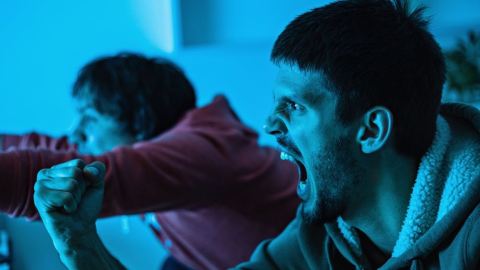Hating an Opposing Sports Team Develops a Moral Sense

The New York Yankees are the 1 percent. The Boston Bruins are uncouth ruffians. The Dallas Cowboys are spoiled brats. Depending on your own sporting allegiances, you may or may not agree. But there’s no disagreeing that passionate sports fans often develop a seething dislike for their rivals, sometimes descending into outright hatred.
But the intensity of sports rivalry is justified, says Oxford University ethics professor Joshua Shepherd, if it helps develop morally praiseworthy attitudes that transfer from the sporting arena into real life:
“Sometimes there exist moralized conflicts in life in which hatred of the opposing side is morally justified, and in which hatred plausibly motivates morally praiseworthy actions (exhibitions of courage, for example).”
Having attended a university in the Big Ten conference, I experienced this culture firsthand: the way it crept into my outlook even though I had no conscious proclivity toward one team or another. When we lost to a rival, I’d get a little blue. I suppose it helped me bond with others around me.

Dr. Shepherd argues that beyond developing a strong moral sense, sporting rivalries help us coexist with those who have different viewpoints. Indulging a rivalry to extreme emotional conclusions, however, may result in dehumanizing another team, or another team’s players, and that has seriously negative moral consequences.
“[I]n hating archrivals, we give in to darker motivations to paint the world into obviously good and obviously bad, and to dehumanize those who fall on the wrong side. (And dehumanization is a real problem for human beings. It sits behind a wide range of societal and personal failings. We should practice overriding the natural tendency to dehumanize those who are strange to us.)”
That means practicing good sports etiquette, i.e., sportsmanship. When we do, we learn another essential life lesson: It’s essential to work together with people who hold opinions different from our own to achieve common goals like friendship (we hope Congress is listening).
Treating sports as a training round for life was especially important as the National Basketball Association came into being. For years, says three-decade NBA commissioner David Stern, the league was viewed as “too black” for a majority white nation to support. But valuing diversity ultimately triumphed:
Read more at Practical Ethics.





